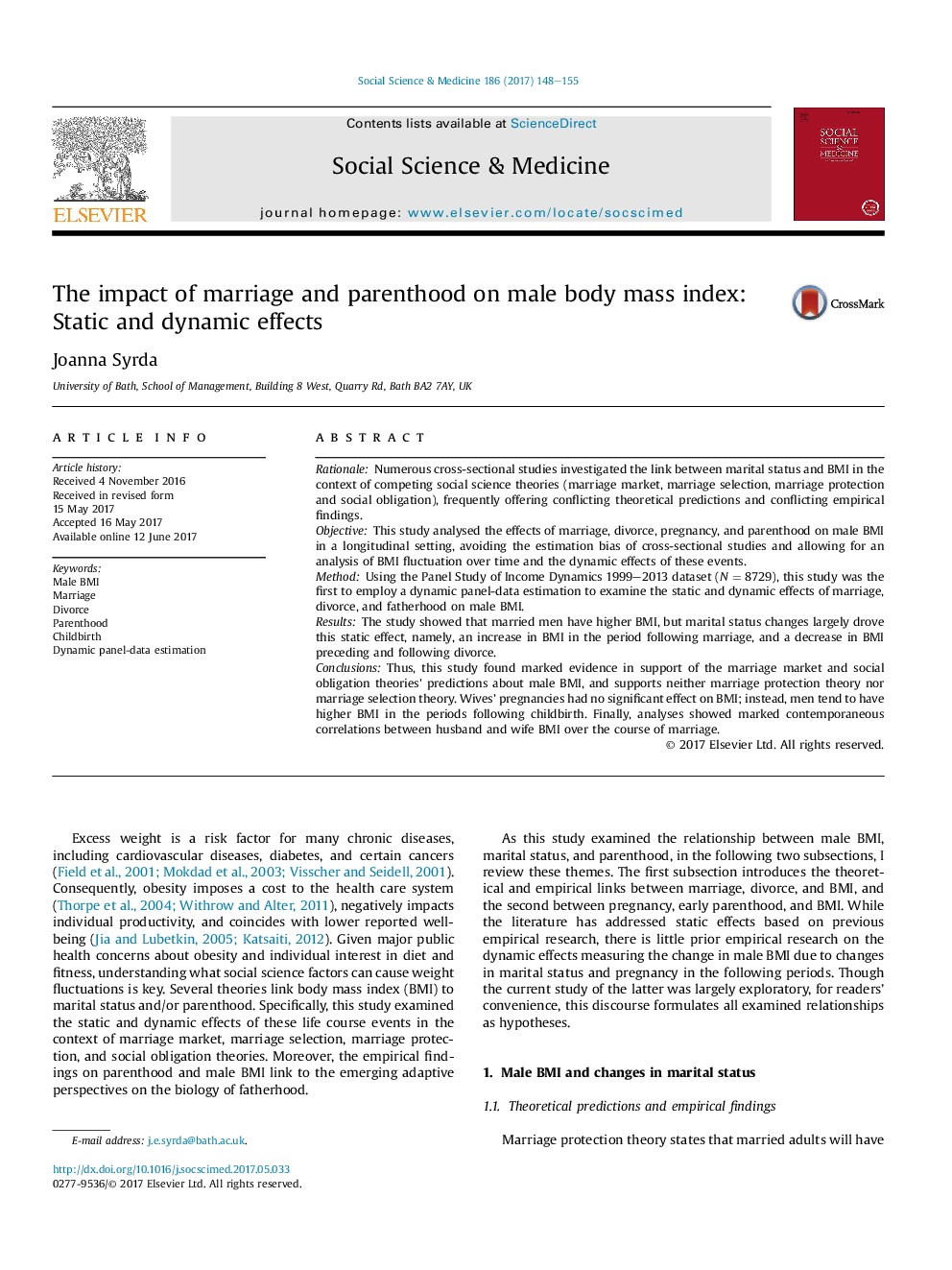| کد مقاله | کد نشریه | سال انتشار | مقاله انگلیسی | نسخه تمام متن |
|---|---|---|---|---|
| 5046393 | 1475983 | 2017 | 8 صفحه PDF | دانلود رایگان |
- Using Panel Study of Income Dynamics data, dynamic panel data estimation is employed.
- Married men have higher Body Mass Index (BMI) than their non-married counterparts.
- Male BMI increases after marriage and decreases just before and after divorce.
- Spousal BMI is significantly and contemporaneously correlated during marriage.
- This evidence supports marriage market and social obligation theories.
RationaleNumerous cross-sectional studies investigated the link between marital status and BMI in the context of competing social science theories (marriage market, marriage selection, marriage protection and social obligation), frequently offering conflicting theoretical predictions and conflicting empirical findings.ObjectiveThis study analysed the effects of marriage, divorce, pregnancy, and parenthood on male BMI in a longitudinal setting, avoiding the estimation bias of cross-sectional studies and allowing for an analysis of BMI fluctuation over time and the dynamic effects of these events.MethodUsing the Panel Study of Income Dynamics 1999-2013 dataset (NÂ =Â 8729), this study was the first to employ a dynamic panel-data estimation to examine the static and dynamic effects of marriage, divorce, and fatherhood on male BMI.ResultsThe study showed that married men have higher BMI, but marital status changes largely drove this static effect, namely, an increase in BMI in the period following marriage, and a decrease in BMI preceding and following divorce.ConclusionsThus, this study found marked evidence in support of the marriage market and social obligation theories' predictions about male BMI, and supports neither marriage protection theory nor marriage selection theory. Wives' pregnancies had no significant effect on BMI; instead, men tend to have higher BMI in the periods following childbirth. Finally, analyses showed marked contemporaneous correlations between husband and wife BMI over the course of marriage.
Journal: Social Science & Medicine - Volume 186, August 2017, Pages 148-155
